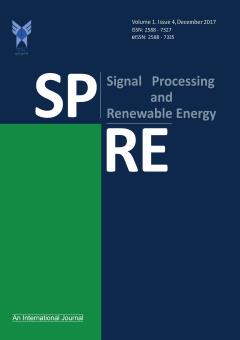Revolutionizing Brain MRI Analysis: Advanced Deep Learning Techniques for Cutting-Edge Classification
Subject Areas : BioEngineering
Mahdi Eslami
1
*
![]() ,
Hamideh Barghamadi
2
,
montather__alwan__kadem montather__alwan__kadem
3
,
Hamideh Barghamadi
2
,
montather__alwan__kadem montather__alwan__kadem
3
1 - Assistant Professor at Department of Electrical and Computer Engineering, Science and Research Branch Islamic Azad University, Tehran, Iran
2 - Department of Medical Engineering, South Tehran Branch, Islamic Azad University, Tehran
3 - Revolutionizing Brain MRI Analysis: Advanced Deep Learning Techniques for Cutting-Edge Classification
Author: Montazer Alwan Kazem Al-Saadi, MA, Islamic Azad University, South Tehran branch
Mehdi Eslami, Ph.D., Islamic Azad University,
Keywords: deep, convolutional networks, MRI images, brain tumor,
Abstract :
Using advanced classification techniques in MRI imaging significantly enhances the accuracy of brain tumor diagnoses. Prior research predominantly concentrated on differentiating between normal (non-tumor) and abnormal (tumor) brain MRIs through machine learning or artificial intelligence approaches. This article, however, advances the field by employing deep learning architectures to categorize brain MRI images into four distinct classes: healthy, meningioma, pituitary, and glioma. To achieve a more precise and meaningful classification, the study incorporates gender and age as critical features. A convolutional neural network (CNN)-based method is proposed for this effective classification. To compare their effectiveness, the study meticulously implements and analyses various designed architectures of deep learning networks, including LeNet, AlexNet, ResNet, and an innovative CNN-DNN network. A notable finding of this research is the impressive accuracy rate of 98.70% for the test data in this 4-class classification, which is a remarkable achievement. This high level of accuracy underscores the efficacy of the proposed method. Furthermore, the results compellingly demonstrate that the inclusion of age and gender information significantly enhances the classification process, playing a crucial role in the accuracy of the diagnoses. In summary, this study presents a highly accurate deep learning-based approach for classifying brain MRI images and highlights the importance of incorporating demographic features like age and gender in medical image analysis.

